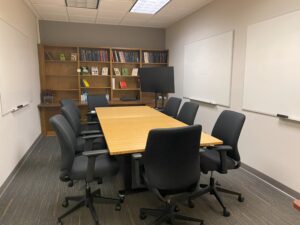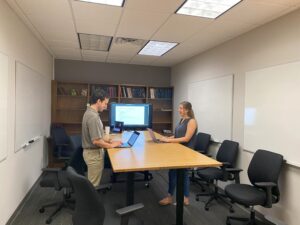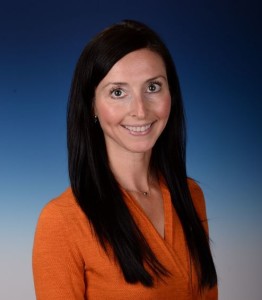The mission of the Applied Sport Psychology Lab (ASPL) is to maximize the athlete experience and benefits available from sport through world leading research and programming. Within the ASPL, we conduct responsive applied research as well as create and develop programming, conduct evaluations, and prepare evidence-based resources that directly impact targeted end-users. Research conducted within the ASPL typically focuses on sport groups and key sport stakeholders, as well as athlete and support staff for athletic organizations.
The primary aims pursued within the ASPL are (1) producing high quality research and scholarship, and (2) developing programming to enhance mental health and mental performance related to sport, exercise, and rehabilitation settings. Faculty-directed research teams utilize the ASPL for research design and analysis, and program and curriculum development and evaluation. Presently, two teams share this space: the Sport Psychology Service Provision (SP2) team, and the Psychosocial Aspects of School Sport (PASS) team.
Leadership
- The Applied Sport Psychology Lab is presently supervised by Dr. Zakrajsek and Dr. Blanton.
- Contact Dr. Zakrajsek at raz@utk.edu | Contact Dr. Blanton at jed@utk.edu
Doctoral, Graduate, and Undergraduate students that work on our research and project teams utilize this space to collect and analyze data, and to prepare, develop, and evaluate programs that serve our unique partners in a variety of settings
Each research team member and student working on projects under the direction of either Dr. Zakrajsek or Dr. Blanton should report directly to their faculty supervisor regarding issues related to the space or projects.



 The Sport Psychology Service Provision (SP²) team is directed by Dr. Rebecca Zakrajsek.
The Sport Psychology Service Provision (SP²) team is directed by Dr. Rebecca Zakrajsek.
On the SP² team, we focus on maximizing athlete well-being and performance by working effectively with and through sport personnel (e.g., coaches, athletic trainers, physical therapists, strength and conditioning coaches, administrators). Through research, we have developed and continue to investigate the Multidimensional Model of Sport Psychology Service Provision (M²SP²), which is a conceptual framework focused on perceptions and attitudes that influence gaining access as well as impact satisfaction with and continued use of sport psychology services. The M²SP² is rooted in attitude and behavior change theories. In addition, our team focuses on the development and evaluation of programs (e.g., mental skills, interpersonal skills, and intrapersonal skills) aimed to ultimately impact well-being and/or performance success. This research agenda is rooted in person-centered theory, motivation (self-determination theory), thriving, and resilience. Our primary scientific and applied organization is the Association for Applied Sport Psychology (AASP), and we regularly present our research at AASP, FEPSAC, USCCE, and MSEPS.
Sport Psychology Service Provision (SP²) Team:
Director: Rebecca Zakrajsek
Doctoral Students: Shane Thomson, Shelby Miller
Current Projects:
- Mental training program for DPT students (South College)
- Developmental evaluation – currently revising program based on developmental evaluation findings from pilot
- Preparing for implementation of program with South College DPT students in 2023
- Person-Centered Theory – Exploring Positive Self-Regard within sport
- Athletes’ experiences of positive self-regard throughout their sport experience
- Survey study (conceptualization): Relationship between positive self-regard, thriving, and resilience
- Use of Sport Psychology and Mental Performance Services
- Currently conducting a mixed-methods study identifying and assessing NCAA DI athletic trainers’ personal use of sport psychology techniques and mental performance services.
- USA Figure Skating
- Collaborating with USA Figure Skating applied practitioners and world scholars – use of innovative research and technology to support athlete thriving
 The Psychosocial Aspects of School Sport (PASS) team is directed by Dr. Jedediah Blanton.
The Psychosocial Aspects of School Sport (PASS) team is directed by Dr. Jedediah Blanton.
On the PASS team, we focus on adolescent development in sport, primarily through maximizing the interscholastic sport experience for young people. We aim to help athletes, coaches, and administrators identify how to increase the positive developmental nature of school sport, and seek ways to harness the educational mission of high school and interscholastic athletics. Our team collaborates with world-leading scholars and national sport organizations to develop and evaluate programming, and to explore the sport experience for young people. In directing the PASS team, Dr. Blanton is guided by three goals that facilitate and situate our work: (1) Mentor students in research practices and professional development, (2) Sustain productivity through scholarly artifacts, and (3) Purse partnerships to serve youth sport stakeholders.
Our primary scientific society is the North American Society for the Psychology of Sport and Physical Activity, and we regularly attend the Midwest Sport and Exercise Psychology Symposium (MSEPS).
Psychosocial Aspects of School Sport (PASS) Team:
Director: Jedediah Blanton
Doctoral Students: Rachel Williams, Kayleigh Hart
Undergraduate Researchers/Assistants: Lauren McReynolds, Allison Pooley, Haitham Rghebi
The Sport Psychology Service Provision (SP²) team is directed by Dr. Rebecca Zakrajsek | email: raz@utk.edu
The Psychosocial Aspects of School Sport (PASS) team is directed by Dr. Jedediah Blanton | email: jed@utk.edu
If you are interested in joining the Applied Sport Psychology Laboratory and one of the research teams as a potential or incoming GRADUATE STUDENT, please email the faculty directors.
If you are interested in joining one of the research teams as an UNDERGRADUATE student – Thank you!
PASS Team Research Assistants Job Description
We are happy to support undergraduate students in our research projects as much as possible, so long as we can offer a good mentored experience that contributes to one of our research aims. To be most prepared to join our research teams, interested undergraduate students should complete the CITI research training <link> in Social and Behavioral Research. Send along your resume and a brief goal statement to the professor whose team you are interested in assisting, and include the CITI training certificate as an attachment. Though it is certainly not required, students who have taken KNS 231 Intro to Sport Psychology are usually poised to engage more deeply in our work with that course behind them.